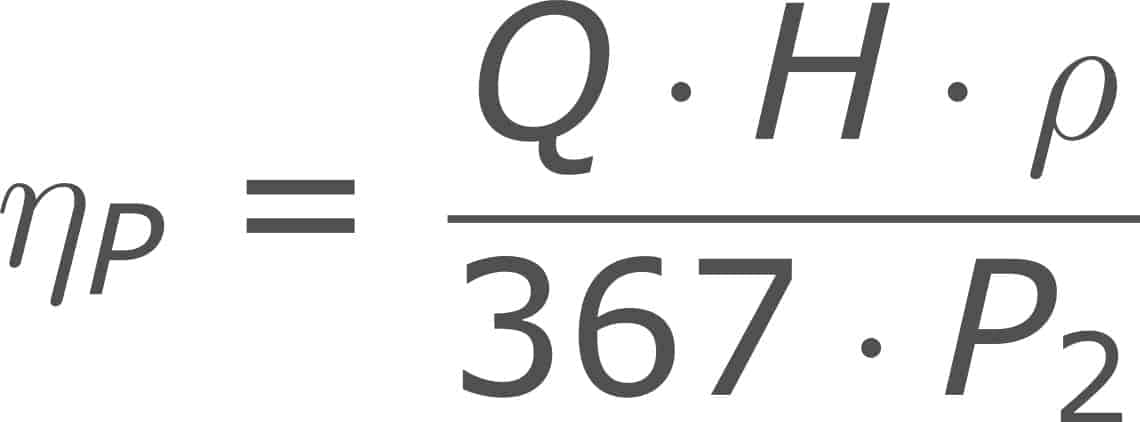What is the efficiency of a centrifugal pump?
The efficiency of each machine is the ratio of the delivered power to the absorbed power. This ratio is indicated by the Greek letter η (eta).
There are two ways to find out the return:
- Find out the efficiency of the centrifugal pump through the product selection software Wilo-Select;
- Calculate the efficiency of the centrifugal pump yourself.
Find out the efficiency of the centrifugal pump via the product selection software
The exact hydraulic efficiency is easy to find out via Wilo-Select, Wilo's product selection software. By entering the duty point and possibly other installation-specific characteristics, a list of possible pumps is created. By selecting a pump, the pump curve appears instantly. In one of the duty charts, a pump curve with hydraulic efficiency is immediately visible.
Is the graph with the hydraulic efficiency not visible? Then click on the tab “Chart settings” and check that the checkmark next to “Show hydraulic efficiency” is enabled. If not, tick the respective box to make it transparent.
Calculate the efficiency of the centrifugal pump yourself
Since there is no lossless drive, η is therefore always less than 1 (100%). With a heating circulator the total efficiency consists of the motor efficiency ηM (electrical and mechanical) and the hydraulic efficiency ηP. The multiplication of these two values results in the total efficiency ηtot.
These efficiencies can vary widely for the different pump types and pump sizes. For glandless pumps, the efficiencies ηtot are between 5% and 54% (high-efficiency pump), for glanded pumps the ηtot is between 30% and 80%.
Even within the pump's characteristic curve, the efficiency changes at any point on its curve between zero and a maximum value.
If the pump is operating against a closed valve, a high pump pressure is achieved, but as no water is flowing, the effect of the pump is zero. The same applies to open management. Despite a large amount of water, no pressure is built up and therefore no efficiency is achieved.
A pump never operates on a single defined duty point alone. For this reason, care should be taken in dimensioning that the heat pump’s duty point is in the middle third of the pump curve for most of the heating period. Then the pump will work in the area with the best efficiency.
The pump efficiency is determined using the following formula:
Previous FAQ entry:
What parts does a centrifugal pump have?Next FAQ entry:
What is the power consumption of a centrifugal pump?We have answers to your questions
Our products and services have aroused your interest? Then we are happy to help!
Whether it's creating an offer or editing service specifications, designing different types of equipment, advising on the selection of pumps and switchgear, or just helping with hydraulic and control issues.
Feel free to contact your nearest sales office and make an appointment. We look forward to you!
Find the right contact for your question.

